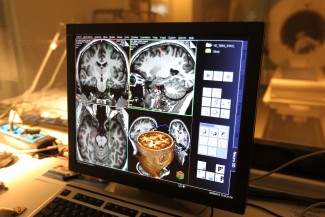Launched in June 2015 by Paris Brain Institute, the Big Brain Theory (BBT) programme funds innovative, interdisciplinary, high-risk projects co-sponsored by various in-house research teams.
Origins of the programme
The Big Brain Theory program was born out of an original idea: what if it were possible to do research differently, more boldly and interdisciplinarily, to find tomorrow’s treatments for brain diseases?
Why "Big Brain"? Because the challenges of the brain are immense, and because so are our ambitions to serve patients.
Why “Theory”? Because we want to propose unexplored ideas and new ways to advance our understanding of our brain.
This research program now includes many bold and innovative projects, some of which have already led to major discoveries.
Exploring new avenues
Since its inception, the Big Brain Theory program has provided grants for innovative, interdisciplinary new projects in neuroscience for researchers and clinicians at the Institute.
Paris Brain Institute hopes that each "Big Brain Theory" will aim to engage each Principal Investigator and Platforms in a collaborative effort to broaden the impact of individual-level research and develop new pioneering projects that translate into collective advances that will become the symbols of the Institute.







